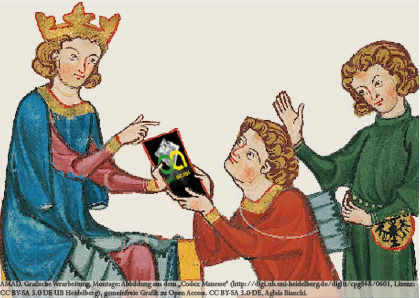AMAD
"Archivum Medii Aevi Digitale - Specialized open access repository for research in the middle ages"To submission

Full metadata record
| DC Field | Value | Language |
|---|---|---|
| Author | Fabian Steininger | - |
| Author | Tosato Andrea Giorgio | - |
| Author | Edwards Andrew | - |
| Date | 2018 | - |
| Other Identifier | https://doi.org/10.17613/M6RF5KF5M | - |
| URI | https://www.amad.org/jspui/handle/123456789/109608 | - |
| Description | This article argues that the commodity “nature” ascribed to early modern money should be understood as an ideological effect of Chinese domination of the early modern global monetary system. In the three centuries before 1800, Chinese demand for silver anchored a global system that made silver valued by weight and fineness the apparently natural money of the world, just as it in late Ming and Qing China. We argue that this naturalization should be understood as resulting from Chinese power, and that the early modern era is perhaps best understood as an era of Chinese global hegemony. We follow the effects of this Chinese monetary hegemony through three different fields. First, we trace it through early modern English financiers and philosophers’ formulation of the ideal qualities of a universal money, deliberately based on the Chinese model. Second, we show the importance of Chinese demand for silver for evoking and determining the character of the British Empire in India. And finally, we show how officials naturalized silver as money in early modern Ottoman statecraft. | - |
| Language | unknown | - |
| Dewey Decimal Classification | 940 | - |
| Title | The Era of Chinese Global Hegemony: Denaturalizing Money in the Early Modern World | - |
| AMAD ID | 614542 | - |
| Year | 2018 | - |
| Open Access | 1 | - |
| Appears in Collections: | BASE (Bielefeld Academic Search Engine) General history of Europe | |
Files in This Item:
There are no files associated with this item.
Items in DSpace are protected by copyright, with all rights reserved, unless otherwise indicated.

